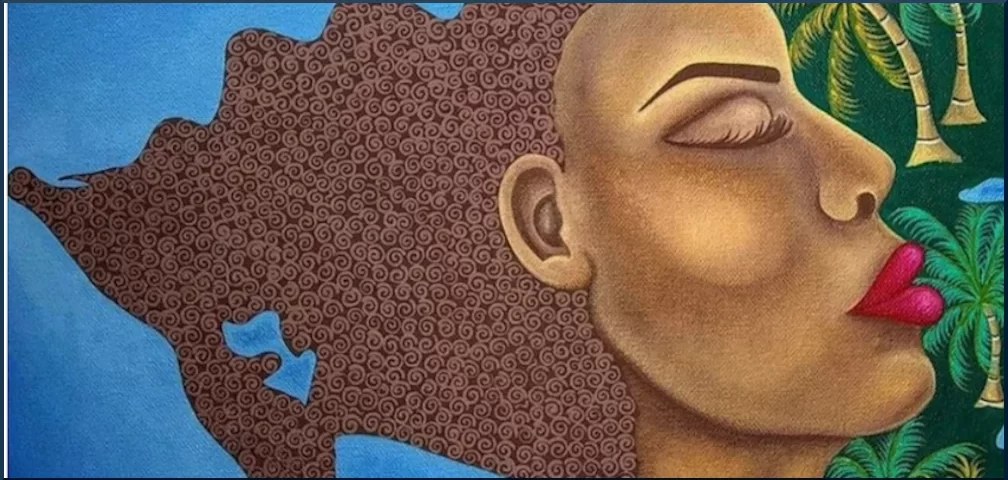Nicaragua’s Troubles: A View From the Caribbean Coast
Mike Phipps reviews: To Defend the Sunrise: Black Women’s Activism and the Authoritarian Turn in Nicaragua, by Courtney Desiree Morris, Published by Rutgers University Press
by Margaret Kimberley, published on Black Agenda Report, April 12, 2023
The question of how Black people fare in a particular country can be a legitimate issue or a ruse used in the furtherance of U.S. regime change plots.
“We used to talk about, when I was a kid, in college, about ‘America’s Backyard’. It’s not America’s backyard. Everything south of the Mexican border is ‘America’s Front Yard’. And we’re equal people. We don’t dictate what happens in any other part of this continent or the South American continent. We have to work very hard on it.” President Joe Biden
Even while claiming to believe in the sovereignty of all American states, Joe Biden couldn’t help but use hackneyed phrases about whether the rest of the hemisphere is in his yard. He exposed himself and what the U.S. state does in the Caribbean and Central America and South America.
Regime change is still the goal whenever people in the region dare to attempt self-determination. Haiti remains under threat of invasions under the guise of protecting its people. The U.S. pressures revolutionary governments with sanctions and some are under attack through proxy wars and coups.
The 2021 protests in Cuba showed clear proof of a U.S. hand. Demonstrations orchestrated from abroad were characterized as a widespread movement to change the government and suddenly Black people in that country received special attention. “Cuba’s Black Communities Bear the Brunt of Regime’s Crackdown ” said the Wall Street Journal. “Long marginalized Afro Cubans at forefront of Island’s unrest ,” was the Washington Post headline and Politico chimed in with “Afro Cubans on the Brink .”
None of these outlets express support for the struggles of Black people in this country, or analyze the conditions they live under, yet they suddenly gave great attention to Black people in Cuba and portrayed them all as government opponents. The reasoning was obvious, using the white and prosperous Cuban exile community as a prop was not going to work. Better for the U.S. to fund Black Cuban rappers to sing anti-government propaganda.
Of course Cuba wasn’t the end of the story. Nicaragua was next on the list for U.S. interventions in 2021. That country has been a target of U.S. imperialism for decades.
In the 1850s, an American named William Walker involved himself in a Nicaraguan civil war, raised an army of mercenaries, and proclaimed himself president of that nation. He also sought to relegalize slavery, which Nicaragua had abolished. For a time his government was recognized by President Franklin Pierce. Walker was ultimately deposed and executed but U.S. inference didn’t stop.
Marines occupied the country three times between 1909 and 1933. The Somoza family ruled with US support until the 1979 Sandinista revolution. Of course, the U.S. involved itself again and Ronald Reagan waged a deadly contra war during his terms in office.
Now the war against an independent and sovereign Nicaragua goes on, but with some new twists. In 2018 the Donald Trump administration backed a coup attempt which terrorized the nation for three months and killed more than 200 people. The Nicaraguan government under President Daniel Ortega was accused of human rights abuses for doing what any other state would do, imprison those who tried to overthrow it. These penalties were enacted after the golpistas, the coup makers, violated an amnesty and continued to work with the U.S. against the Nicaraguan government. When Ortega recently released 222 of the plotters and deported them to the U.S., a group of them were greeted by Secretary of State Antony Blinken, including some who had committed murders .
As in Cuba, Black Nicaraguans have become the face of U.S. inspired opposition. Black academics here write books about an “authoritarian turn ” in that country. They do not mention how the 2018 coup attempt devastated that country, and conveniently erase the U.S. role in instigating the violence and now in protecting the perpetrators. Nor do they mention that during the 2021 presidential election, the Sandinista government received strong support from the Atlantic coast communities where the African descended population predominates.
Of course this entire western hemisphere is infected with racism. It can’t be otherwise when it was built on the backs of African and indigenous genocides. If Black Cubans or Nicaraguans fare worse than other groups in their societies, they are no different than Black people in the U.S. It is cynical in the extreme to use the oppressed to make the case for old fashioned Yankee imperialism. But war propaganda is a lie by its very nature, and critiques of nations labeled as adversaries should be seen as just that.
The role of people living within the empire is a simple one. Oppose interventions and interference carried out against other countries. For Black people there is another admonition. Never trust anyone claiming that Black people living in a revolutionary state are being treated any worse than you are. Regardless of their nation’s problems it is unlikely that they face as many negative outcomes as we do here. Black rappers may get USAID money to help undermine another country, but any advantages end at the whim of the imperialist system.
Margaret Kimberley is the author of Prejudential: Black America and the Presidents. You can support her work on Patreon and also find it on the Twitter and Telegram platforms. She can be reached via email at margaret.kimberley(at)blackagendareport.com.
